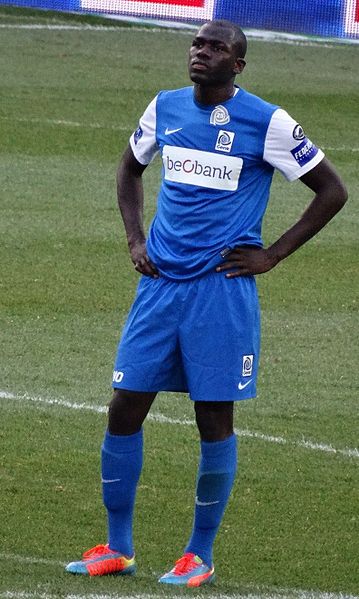By Stephen Fragano

In Italian soccer’s top tier known as Serie A, there has been a good amount of occurrences during contests that reflect the current cultural climate in both Italy and across the globe.
During the match on Feb. 3 between Lazio and Napoli at the Stadio Olimpico in Rome, racist chants were targeted at Napoli defender Kalidou Koulibaly. Lazio supporters chanted racist slurs toward the Senegalese defender Koulibaly from their large supporter section known as the Curva Nord, in addition to other sections around the stadium.
The chanting became so forceful that head referee Massimilliano Irrati made the decision to suspend play in the 68th minute to allow the chanting to stop and for disciplinary action to take place. Play resumed three minutes later, but the decision to suspend play holds large significance despite the break lasting only three short minutes. In addition to the break in play, there were monetary consequences for Lazio to face. The club was fined 50,000 Euros for the racist chants, in addition to a 15,000 Euro fine for other derogatory chants aimed at the visiting Neapolitan supporters. The Curva Nord supporter section and the other sections which partook in the chanting have been closed to the public for two matches as punishment.
This incident of racism has not been the only instance of social strife exhibited in the league. Less than a week and a half ago, the head coach of Napoli, Maurizio Sarri, was found guilty of calling opponent head coach Roberto Mancini of Inter Milan a homophobic slur during a quarrel in the quarter-final of the Italian Cup (Coppa Italia). For his actions, the league fined Sarri 20,000 Euros and handed down a two game suspension.
These instances are important to notice, not only for the state of the league, but also for the state of the country. The fact that Serie A took action to punish behavior that it found unacceptable is important. The league could have turned a blind eye to the homophobic slur that Sarri uttered. Referee Massimilliano Irrati was not obligated to suspend play in the midst of racist chanting. Yet, he took action. There were fines, there were suspensions, and there were consequences.
Italy, like the rest of the countries of the world, is not void of serious social problems. Racism, which unfortunately is ubiquitous, exists. As the world is becoming more globalized, Italy has seen great numbers of immigrants from around the globe come and build lives within its borders. That is not to say that immigration caused racism, but it can serve as a catalyst for racist thought or behavior. There have also been protests in Italy recently against gay marriage. These social issues are present in the country’s social climate, and they certainly have made an appearance in one of its favorite pastimes.
The most important thing to remember is that sports are an extension of reality rather than an alternate reality. Just because sporting events are seen as an escape or a way to forget about “real life” for a couple of hours, it does not mean people can disregard moral and social values of everyday life. The Lazio fans partaking in the chants may have seen it as a joke during a sporting event. They may not behave that way in their everyday lives. However, Irrati understood that sports and day-to-day life are not separate. There should be consequences for misbehavior at sporting events.
These social issues have become a part of Italy’s reality. Therefore, it makes sense that they would appear at sporting events, since sports are a part of everyday life – not some sort of separate social world where anything goes. Citizens will have to use these instances as experiences to grow and define where they stand on these issues.





































































































































































































